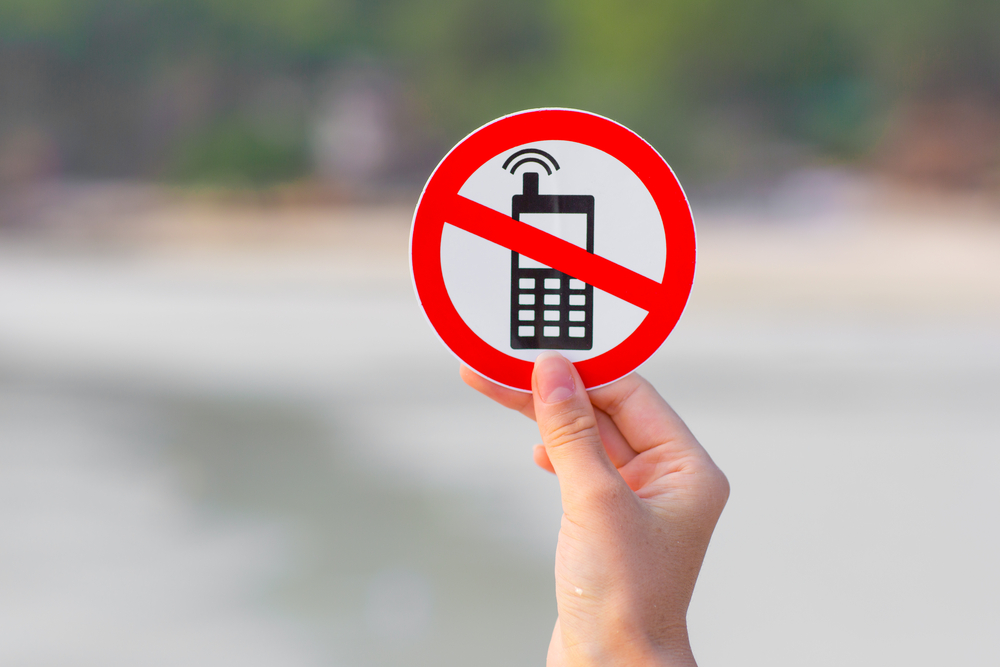When Zach Beattie woke up one morning to check emails from the monstrously luminescent screen on his cell phone, he found himself changed.
“I woke up one morning thinking I just feel so terrible,” Beattie told Techli in a recent phone interview. “The last thing I want to do right now is look at my phone. I didn’t think it was an isolated experience talking with some other friends that worked in tech and I knew I needed to find a way to escape the phone for a bit.”
The 26-year-old Missouri native who graduated from the state’s flagship university in Columbia was working with the Silicon Valley-based company Mapbox at the time. Though it was a great job for a recent college graduate that Beattie said he enjoyed overall, he added that he felt a constant pressure to always stay connected to his cell phone.
Soon the idea was born to quit the security of his job and begin a startup travel company that was constructed around a single pillar of thought: take people abroad on luxurious trips but make them keep the smartphones at home.
He founded and launched Off the Grid in January to combine both his passion for travel and his weariness of cell phone dependence into a meaningful vocation. The brand new startup offers affordable trips to top destinations – groups are now signing up for separate 10-day trips to Lisbon and Prague – where travelers put their smartphones in stowaway pouches that are stored in their rooms.
“There were comments from friends saying ‘I don’t know if I could do that’ and that made me want to pursue it even more,” Beattie said. “What other device has so much power on us that we’re afraid to put it down even for a few days?”
After announcing the plans for the now D.C-based travel company on his personal Facebook profile, he was immediately flooded with messages from overworked techies dizzy from staring into screens and mothers tired of going on trips where each family member sat around with an iPad. The only challenge now, Beattie said, is that the company may be growing too fast as he will eventually try to balance one trip per month.

One of Off the Grid’s first trips will be to Lisbon, Portugal. (Courtesy Shutterstock)
Besides the two trips currently accepting applications, four more destinations are posted on Off the Grid’s site that Beattie said will start accepting applications April 1. Already, the company has received around 50 applications for Lisbon and Prague, Beattie said, adding that he looks through each one to get a sense of why people want to get away from their phones.
The itineraries are a balance between structured social time with fellow group members and three to four days of personal time where travelers can do their own activities. Beattie said there will be game nights, coffee outings, and even journaling activities meant to both get people talking and have them reflecting together on why it might be important to put down the cell phone for a bit.
“One key piece to this is the social aspect and the fact that you’re doing it with a group of people,” he said. “We’ve reversed the social pressure to say on this trip there’s going to be social pressure to not be on your phone.
“If you don’t have someone setting the intention or helping you out in the process, you’re never going to do it,” Beattie added. “It’s an incredibly difficult thing to do solo. I don’t like to use the word addiction but phones have a lot of power over us.”
On top of addiction, one other buzz word Beattie hears a lot when mentioning his startup is ‘millennial,’ with people assuming that it’s only his same age group that overuses their mobile devices.
“This isn’t a millennial thing,” Beattie said. “My parents are on Facebook all the time. The kids below us don’t know a world without this kind of tech.”
With the number of people showing immediate interest in his company – on top of more general movements like the steadily growing ‘Delete Facebook’ campaign – Beattie said he’s encouraged that it could actually be millennials who bridge a healthy gap between time away from their computer and cell phone screens.
In addition to standard travel groups, Beattie is also toying with the idea of setting up work retreats where employers and employees can have deeper interactions without the need to be plugged in.
“One of the big ironies for me is when I went on work retreats that people were working too much, which I don’t think is the point,” he said.
The young businessman has a number of offset plans for his startup that is still very much in the early stages. But he’s ultimately relying on the bedrock notion that people will have more fulfilling travels if they shed the inherent stresses and distractions that phones bring.
For many potential travelers, Beattie said, that’s unchartered territory.
“When you take away the phone or the internet for a day or two you have this void that people are so afraid of,” Beattie said. “It’s going to force people to say when I don’t have this, what am I left with? What do I think about? What do I do? For a lot of people, they haven’t had that void for years.”









